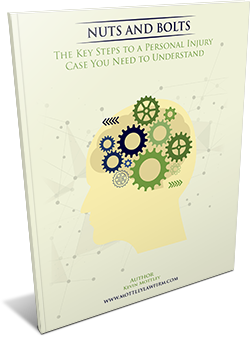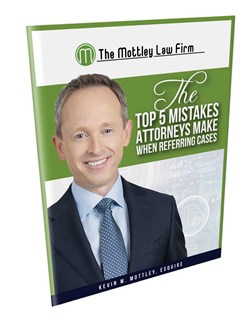Satisfying the Burden of Proof
The police report may state the speeding motorist caused the accident, and you may fully agree with this opinion. But, this isn’t enough. For your case to succeed, there’s a three-part process to prove the other driver’s liability:
- Your legal team must prove the other motorist owed you a legal duty of care.
- There must be evidence showing they breached this duty of care.
- Further, it must be proven that their negligence caused your injuries.
The third point is especially important. Even if the other driver was speeding, they may not have necessarily caused your injuries. Case evidence needs to prove this is true.
Pure Contributory Negligence Rule in Virginia
Many states adhere to some form of comparative negligence. Fault is assigned as a percentage, and your legal right to compensation is then proportional to this percentage. Virginia isn’t one of these states. Instead, the Commonwealth adheres to the legal doctrine of pure contributory negligence. This means the other party must be 100 percent at fault for victims to seek damages.
This is the primary reason why it’s so crucial to hire an experienced car accident lawyer. If the other driver can demonstrate you’re even one percent at fault, you may be barred from seeking compensation from them. They may dispute liability and reduce your compensatory reward to zero.
How The Mottley Law Firm Can Help
The statute of limitations in Virginia for filing a claim is two years, and the complex legal process can be time-consuming, so it’s critical to call our car crash lawyers as soon as possible. Our trusted Richmond personal injury lawyers are invaluable to the aid progress of your car accident case in several ways.
Proving Negligence and Establishing Liability for Injuries
The first step to seeking compensation is identifying all liable parties, but proving negligence in a Virginia car accident is rarely an open-and-shut circumstance. Many factors can be involved and the driver at fault may look for ways to reduce their liability. Our team diligently seeks out evidence to support your case. This may include medical reports, witness statements, photographic evidence, expert analysis, and other valuable sources. With this evidence, we develop a strong argument and advocate for your compensation claim.
Guiding Your Claim to the Correct Party
Even when a potentially speeding driver is involved, there are still other legalities to abide by, including filing paperwork with all insurance carriers, healthcare providers, and other third parties. We ensure your claims are brought forward in front of the right people in a timely manner.
Assessing the Fair Value of a Case Settlement Amount
On the surface, you may think you’re only eligible to recover basic expenses, such as medical bills and vehicle repair costs. In reality, fair compensation may be much greater than that. Your injuries may result in long-term medical costs or reduce your earning potential at work. You can also seek compensation for pain and suffering, reduced quality of life, and other damages. Your lawyer works with you to determine the fair monetary value of your injury claim.
Negotiating for the Best Possible Outcome
Based on detailed analysis, the skilled professionals at The Mottley Law Firm may come up with a dollar amount we believe is a fair settlement. However, an insurer will likely disagree. They may even give you a lowball offer in hopes of closing your case quickly. It’s in their best interest to reduce or even eliminate their company’s liability. Don’t accept this offer. We’ll champion your claim and fight tirelessly to justify your full claim amount.
Understanding What’s at Stake
It’s not just about repairing your car and paying for your initial hospital visit. Broken bones from a car accident can lead to even more expenses. As discussed above, you may have long-term medical costs. Your physical and emotional recovery might affect both current and future wages. It’s important to speak with an experienced attorney who outlines exactly what’s at stake. Other considerations may include:
- Further medical treatment and expenses
- The need for assistive devices and other medical equipment
- Lost wages
- Future earning potential
- Long-term disability
- Quality of life
- Pain and suffering
- Emotional anguish
- Punitive damages






